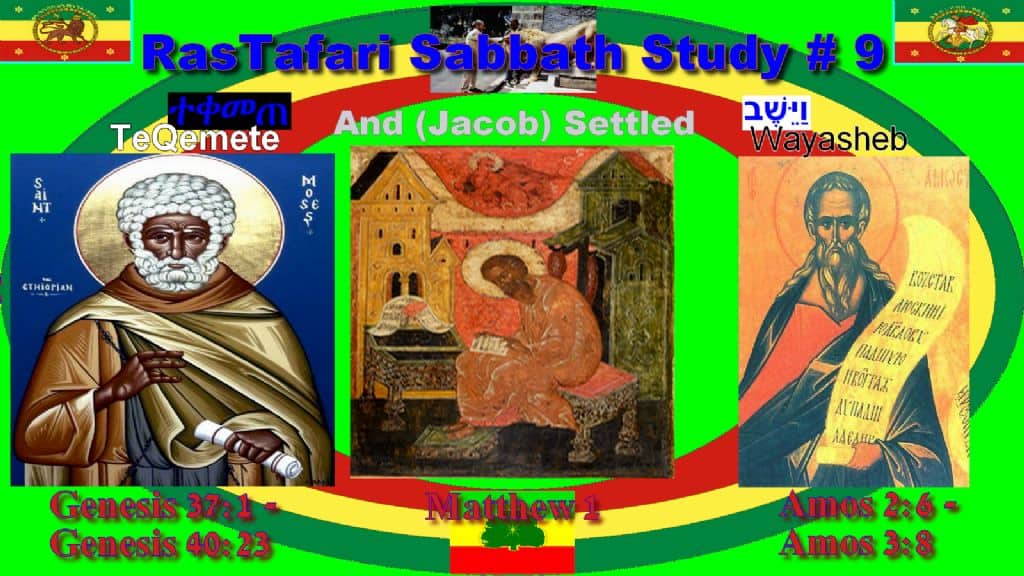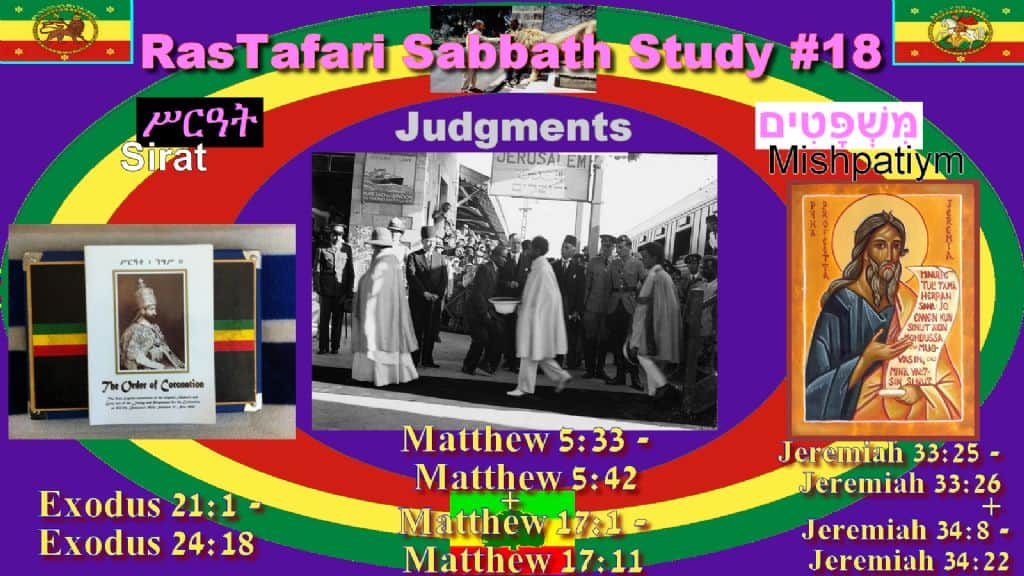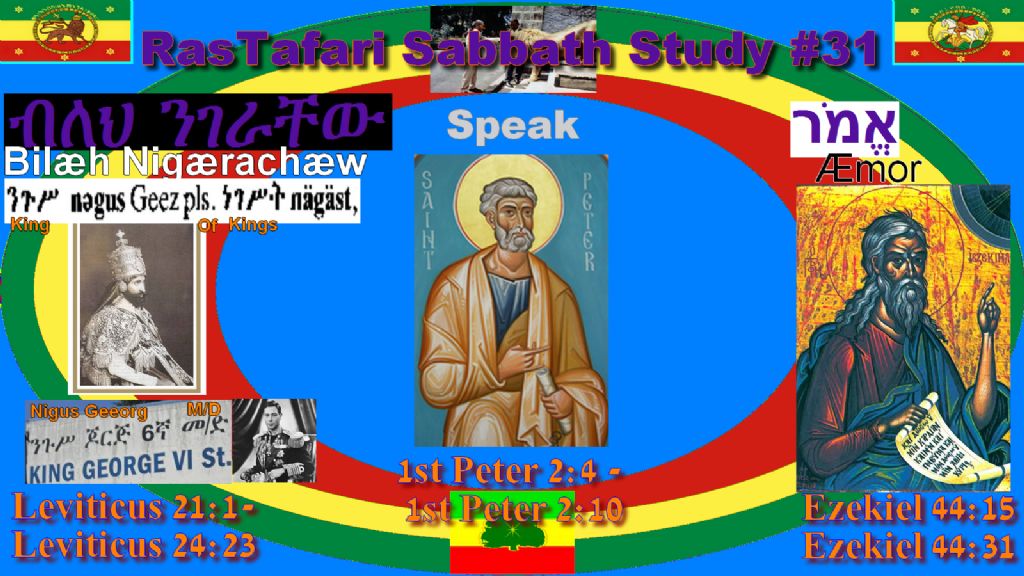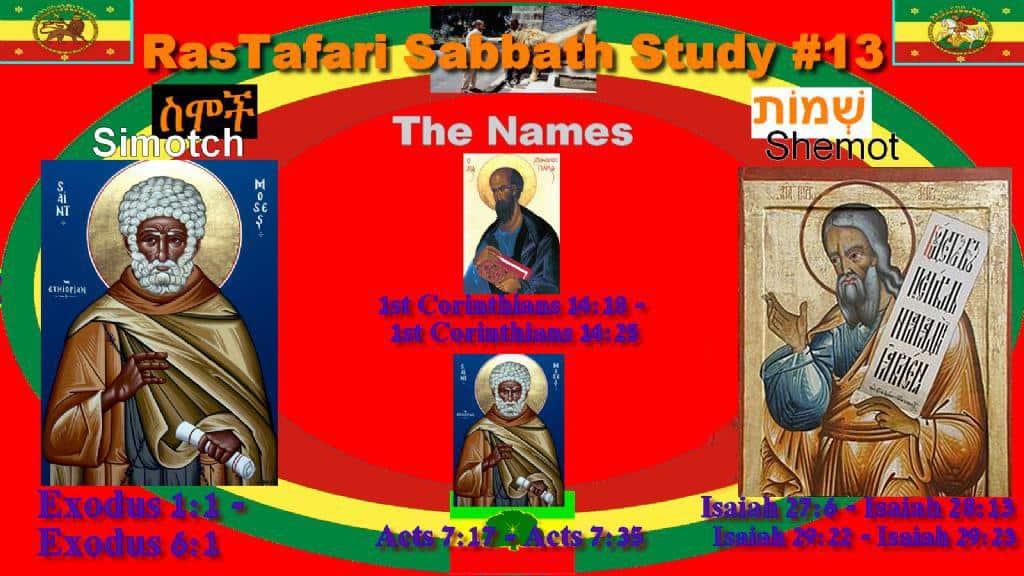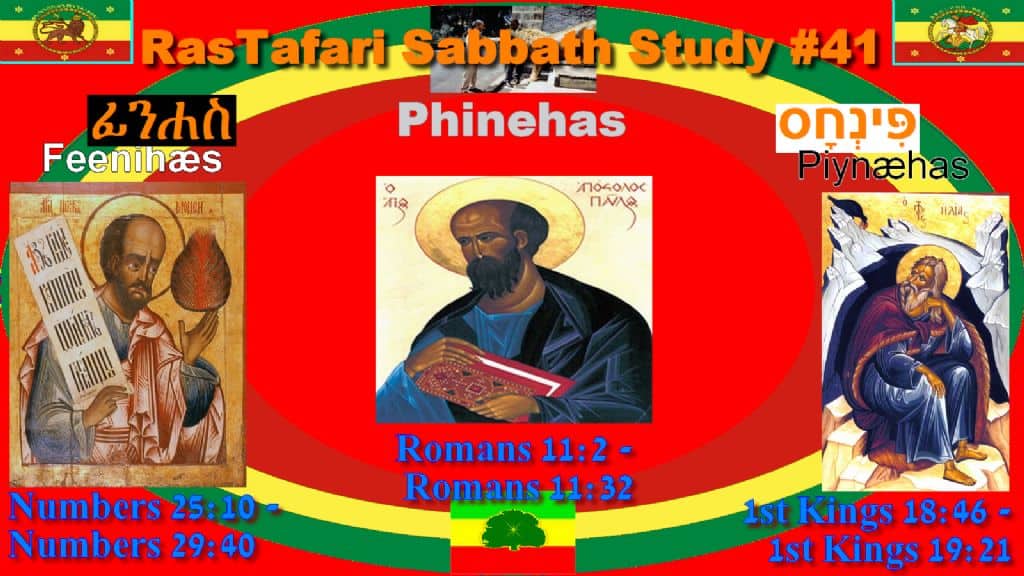This Week's Portion #9
Vayeshev | וישב | "And he settled" በኖረበት…ተቀመጠ | Benorebet... teq’emmeT’e
*For a PDF version of All the Torah Portions Schedule, click here to download!
2. Prophets Reading
Amos 2:6-3:8
3. New Testament Reading
Matt 1:1-6;16-25
Portion Outline – TORAH
- Genesis 37:1 | Joseph Dreams of Greatness
- Genesis 37:12 | Joseph Is Sold by His Brothers
- Genesis 38:1 | Judah and Tamar
- Genesis 39:1 | Joseph and Potiphar's Wife
- Genesis 40:1 | The Dreams of Two Prisoners
Portion Outline – PROPHETS
- Amos 2:6 | Judgment on Israel
- Amos 3:1 | Israel's Guilt and Punishment
Portion Study Book Download & Summary
BEREISHIT Hebrew Book of Genesis - Torah Portion Vol.1 (FREE PDF)
The ninth reading from the book of Genesis is named Vayeshev (וישב), which means “and he dwelt.” The title comes from the first verse of the reading, which says, “Now Jacob [dwelt] in the land where his father had sojourned, in the land of Canaan” (Genesis 37:1). Despite the portion’s name and first verse, the story is actually about Jacob’s son Joseph and how he was removed from the land of Canaan and dwelt in Egypt. The narrative follows Joseph from Canaan to Egypt to prison. In addition, this week’s reading contains the story of Judah and Tamar.
Portion Commentary
The Temptation of Joseph
Thought for the Week:
If a person falls prey to sexual temptation, he should immediately confess his sin, renounce it and start over. He should say to himself, I will begin again. In Messiah, I am a new creature. I will start over right now, cleansed of sin, a new creature in Yeshua, who removes my sin. Even if he needs to do this several times a day, a person should never give up the fight. Though you may stumble, never give up the fight.
Commentary:
Sexual temptation is persistent. Especially for men, it seems to be the most common obstacle to living a life of godliness. Perhaps the average man does not need to worry about being harried by sexually deviant Egyptian women like Joseph was, but men are daily assaulted by all manner of temptation. Yeshua warns that even looking on a woman with lust is an adultery of the heart.
The worst thing about sexual temptation is its pernicious nature. Though a person may conquer it one day, it returns the next day for another round. So, too, Potiphar's wife attempted to seduce Joseph day after day.
Sometimes a person tells himself, It's hopeless; I cannot stand against this temptation. When a person has tried, failed, tried again and failed again, he may feel that he is incapable of walking in purity. The Apostle Paul encourages such a person by saying, "No temptation has overtaken you but such as is common to man; and God is faithful, who will not allow you to be tempted beyond what you are able, but with the temptation will provide the way of escape also, so that you will be able to endure it" (1 Corinthians 10:13). If we despair in the battle with our flesh, we will surely fail. The trick is to never give up on oneself.
Joseph faced unrelenting temptation day after day. One of the strategies he employed was distance. Not only did he refuse to lie with Potiphar's wife, he refused to even be with her. Sometimes when a person has prevailed over temptation, he tells himself, I can withstand it. I don't need to worry about it anymore. The Apostle Paul warns us, "Therefore let him who thinks he stands take heed that he does not fall" (1 Corinthians 10:12). A person who struggles with sexual temptation should take whatever precautions are necessary to ensure that he will not fall victim.
The goal of every person should be to persevere against sexual temptation:
Blessed is a man who perseveres under trial; for once he has been approved, he will receive the crown of life which the Lord has promised to those who love Him. (James 1:12)
Middot U'Mitzvot (Character and Deeds)
Flee from Temptation
And he left his garment in her hand and fled, and went outside. (Genesis 39:12)
When Joseph found himself alone in the house with Potiphar's wife, he tried to leap out of the house, but she caught his garment and it slipped from his body. He did not even bother attempting to retrieve it. Instead, he fled from her presence. It was not a passive resistance to sexual temptation or a rigid determination that brought him through the test. Rather, he fled from the possibility of sin.
Joseph's leap from the adulteress lies behind the Apostle Paul's admonitions to "flee immorality" (1 Corinthians 6:18) and to "flee from youthful lusts" (2 Timothy 2:22). In regard to other temptations, Paul tells us to stand firm. In 1 Corinthians 16:13 he says, "Be on the alert, stand firm in the faith, act like men, be strong." In regard to sexual temptation, though, he tells us to run for our lives. Like leaping Joseph, our goal should be to get out of any situation where we face sexual temptation as quickly as possible.
Chanukah 2020 (5781)
On the Biblical calendar the month of Kislev (כִּסְלֵו) is the ninth of the year (counting from Nisan), and also one of the "darkest," with the days progressively getting shorter and the nights getting longer. Indeed, the Winter Solstice often occurs during the last week of Kislev, and therefore the week of Chanukah (which straddles the months of Kislev and Tevet) often contains the longest night of the year. It is no wonder that, among other things, the holiday of Chanukah represents an appropriate time to kindle the lights of faith - and to remember the Light of the World in the Messiah's advent to earth... The Hebrew word Chanukah (חֲנֻכָּה) means "dedication" and marks an eight day winter celebration that commemorates the victory of faith over the ways of speculative reason, and demonstrates the power of the miracle in the face of mere humanism. Although it is customarily observed as a "Festival of Lights," Chanukah is a "fighting holiday" -- a call to resist the oppression of this world and to exercise faith in the LORD (Rom. 13:12).
The Hebrew word Chanukah (חֲנֻכָּה) means "dedication" and marks an eight day winter celebration that commemorates the victory of faith over the ways of speculative reason, and demonstrates the power of the miracle in the face of mere humanism. Although it is customarily observed as a "Festival of Lights," Chanukah is a "fighting holiday" -- a call to resist the oppression of this world and to exercise faith in the LORD (Rom. 13:12).
This year the eight days of Chanukah will begin on Sunday December 22nd at sundown (1st candle) and will run until Monday, December 30th just before sundown. On the first night of Chanukah one flame is lit, on the second night two, and so on until the eighth night when eight flames are lit. In this way we remember the 'growth' of the miracle.
- More information about Chanukah...
- Chanukah Blessings Page
- Chanukah Blesssings Summary Sheet (pdf)
- Should Christians celebrate Chanukah?
Chanukah Torah Readings
Because Chanukah is an eight-day holiday, there has to be at least one day when Shabbat and Chanukah overlap (called "Shabbat Chanukah"), and in some cases there are even two (e.g., on years when Chanukah begins on a Shabbat). When this occurs, the time-saving custom is to read the maftir from a different Torah scroll during services. During the rest of the week, the maftir is divided over the eight days of Chanukah as follows (remember that the day begins at sundown on the Jewish calendar):
|
Since Chanukah celebrates the victory of Maccabee forces over the Greeks and the re-dedication of the Holy Temple in Jerusalem, the additional Chanukah Torah readings are connected to the dedication of the Mishkan (Tabernacle) in the wilderness.
On the first seven days of Chanukah we read of the sacrifices and gifts offered by the first seven tribal leaders. On the eighth day we read of the offerings of the remaining five leaders, and we continue to the next Torah portion, reading about God's commandment to Aaron to kindle the Menorah in the Tabernacle. On the Shabbat of Chanukah we add the Haftorah reading (from the Book of Zechariah) that speaks of Zechariah's prophecy concerning a menorah. (On Rosh Chodesh Tevet, usually the 6th day of Chanukah, additional readings about the new month are recited.)
In the synagogue, on each of the days of Chanukah we recited the full Hallel (הלל שלם). In addition, the Al Hanissim is included as part of the Hoda'ah blessing (of the Amidah) and Birkat Hamazon (i.e., the traditional blessing recited after eating a meal). Al HaNissim praises God for delivering the Jewish people at the time of the Maccabees. Collectively these praises and blessings are called Yemei Hallel v'Hoda'ah in the prayerbook.
The Birth of the Savior...
Though the promised birth of Yeshua may have occurred during the holiday of Sukkot (Tabernacles), with the incarnation occurring during Chanukah (the Festival of Light), many people of good faith still observe the traditional date of December 25th. Regardless of your particular conviction surrounding the date of Messiah's birth, however, the most important point is that he was born to die (Heb. 10:5-7). Indeed, the story of his birth is only significant in relation to His sacrificial death (Mark 8:27-33). The "manger" scene leads directly to the cross. That's the old "gospel story" itself, that "God so loved the world that He gave His only begotten Son, that whoever believes in Him should not perish but have eternal life" (John 3:16). This matter is of "first importance," namely that Yeshua was born to die for our sins, to make us right with God, and was raised from the dead to vindicate the righteousness of God (1 Cor. 15:3-5). His birth (or rather His incarnation) was the "first step" toward His sacrifice for our deliverance (Heb. 2:9-18).
And while "Christmas" is customarily the time that many people observe the birth of the Savior, it is surely appropriate to celebrate Yeshua's glory as our risen King and Lord every day of our lives.... Therefore I sincerely wish each and every one of you a wonderful Christmas Season. May we all take time to reflect upon the profound gift of the One who was so great that He emptied Himself (κένωσις) of all His regal glory and power to be clothed in human flesh in order to die as our sin offering before the Father.
 Note: For some (hopefully irenic) discussion about possible birth dates for Yeshua, see "Was Jesus born on December 25th?" For traditional Christmas readings from the New Testament, see Matt. 1:18-2:12, Luke 1:26-2:20.
Note: For some (hopefully irenic) discussion about possible birth dates for Yeshua, see "Was Jesus born on December 25th?" For traditional Christmas readings from the New Testament, see Matt. 1:18-2:12, Luke 1:26-2:20.
- Promised birth of the Savior
- When was Yeshua born?
- He was born to die...
- The Gospel in the Garden...
- Yom Kippur and Christmas...
- The Word Made Flesh - Thoughts on the Birth of Messiah
- The Word Made Flesh Audio mp3 (SoundCloud here)
- Calendars and Assumptions...
Blessing before Torah Study:
Some terms:
- Parashah is the weekly Scripture portion taken from the Torah. Each parashah is given a name and is usually referred to as "parashat - name" (e.g., parashat Noach). For more information about weekly readings, click here.
- Aliyot refer to a smaller sections of the weekly parashah that are assigned to people of the congregation for public reading during the Torah Reading service. In most congregations it is customary for the person "called up" to recite a blessing for the Torah before and after the assigned section is recited by the cantor. For Shabbat services, there are seven aliyot (and a concluding portion called a maftir). The person who is called to make aliyah is referred to as an oleh (olah, if female).
- Maftir refers to the last Torah aliyah of the Torah chanting service (normally a brief repetition of the 7th aliyah, though on holidays the Maftir portion usually focuses on the Holiday as described in the Torah). The person who recites the Maftir blessing also recites the blessing over the Haftarah portion.
- Haftarah refers to an additional portion from the Nevi'im (Prophets) read after the weekly Torah portion. The person who made the maftir blessing also recites the blessing for the Haftarah, and may even read the Haftarah before the congregation.
- Brit Chadashah refers to New Testament readings which are added to the traditional Torah Reading cycle. Often blessings over the Brit Chadashah are recited before and after the readings.
- Mei Ketuvim refers to a portion read from the Ketuvim, or writings in the Tanakh. Readings from the Ketuvim are usually reserved for Jewish holidays at the synagogue.
- Perek Yomi Tehillim refers to the daily portion of psalms (mizmorim) recited so that the entire book of Psalms (Tehillim) is read through in a month. For a schedule, of daily Psalm readings, click here.
- Gelilah refers to the tying up and covering the Sefer Torah (Torah Scroll) as an honor in the synagogue.
- Divrei Torah ("words of Torah") refers to a commentary, a sermon, or devotional on the Torah portion of the week.
Related Topics:
- Year Through the Torah Book
- Weekly Torah Reading Schedule (entire year)
- Weekly Psalms (Tehillim) Schedule
- Blessing said for (personal) Torah Study
- Archived Portions
- Hebrew Word of the Week
Why Hanukkah is JAH Key, Israel in Spiritual Egypt$?! Ask #Rastafari Rabbi #BlackJews @LOJSociety
Lion Of Judah Chanukkah: 7 Seals of Black Messiah! Ask RasTafari Rabbi @LOJSociety
RasTafari Hanukkah Light Loose 7 Seals [Chakras] & Menorah Lampstand? Ask Rabbi @LOJSociety
We Black Jews: Happy Hanukkah, Christmas Cancelled?! Ask #Rastafari Rabbi #BlackJews @LOJSociety
Hanukkah: Black Christian Or Black 'Jewish' Holiday?! Ask #RasTafari Rabbi #BlackJews @LOJSociety
Hanukkah 7 Lights, 8 Days: Lampstand Vs Candlesticks?! Ask #RasTafari Rabbi #BlackJews @LOJSociety
Black Jewish Hanukkah Victory Vs Black Boule?! Ask RasTafari Rabbi @LOJSociety
Fasting Days (ጾም)
The 7 official fasting periods ordained in the ፍትሐ ነገሥት/Fitiha Negest:
- የረቡዕ እና ዓርብ ጾም/All Wednesdays and Fridays, except for the fifty days after Easter and also if the Feasts of Christmas and Epiphany fall on these days.
- Fast of the Prophets (ጾመ ነቢያት/Tsome Nebiyat): the fast preceding Christmas and which lasts for some 40 days. It begins with Sibket on 15th of the Ethiopian month of Hedar and ends on Christmas Eve with the feast of Gena on the 28th of Tahsas.
- ጾመ ገኀድ/The Gahad of Epiphany: the fast on the eves of Epiphany and Christmas
- The Great Lent: This fast is also known as Fast of Hudadie or ዐቢይ ጾም/Abiy Tsom. It is moveable and lasts for fifty five days
- Jonah's Fast of three days also known as Fast of Ninevah (ጾመ ነነዌ/Nenawe): This is also a fast of movable dates and is observed in commemoration of the preaching of Jonah. It comes on Monday, Tuesday and Wednesday of the third week before Lent.
- Apostles' Fast (ጾመ ሐዋርያት/Tsome Hawariat): It begins on Monday after Pentecost and ends on the 5th of July.
- Assumption of St. Virgin Mary (ጾመ ፍልሰታ ለማርያም/Tsome Filseta): This fast is held from August 1-15 and is dearly observed by many.
Fast Days (Tzomim)
In addition to Yom Kippur, The Talmud (Tractate Rosh Hashana 18b) discusses four fast days (based on Zechariah 8:19) that commemorate the destruction of the First and Second Temples and the exile of the Jewish People from their homeland. In addition, two other fast days are mentioned in the Rabbinical literature, yielding a total of six tzomot (seven if Yom Kippur is included).
- Fast Days of the Jewish Year

